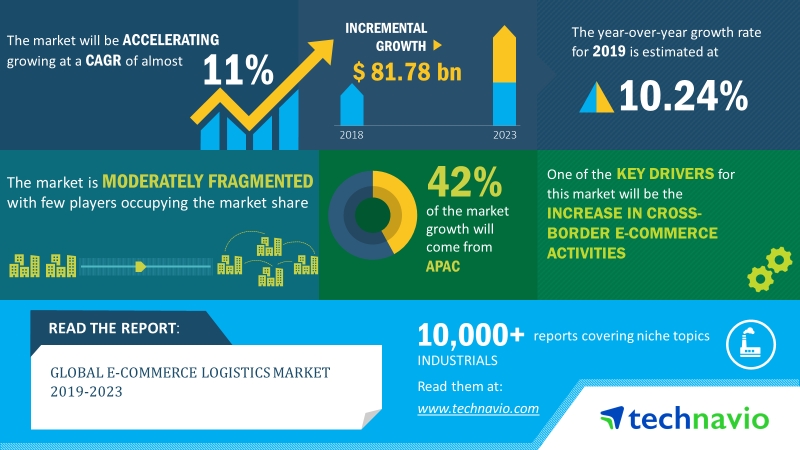
The growth of the e-commerce industry is rising with each day, and the need for faster shipping and other customer demands means such factors can play a role in whether companies receive engagement or not. In light of this, companies are looking for more efficient ways to tackle the heightened appeal of their sector. Many heads are beginning to turn to logistics providers and the logistics sector to handle the added pressure, thus the birth of commerce logistics.
What is commerce logistics?
E-commerce
E-commerce is the process of electronically buying or selling products over the internet and is conducted through any electronic device, such as smartphones, laptops, and tablets. Many companies are now looking to use e-commerce to provide their services over brick-and-mortar stores, as e-commerce can efficiently meet consumer demand.
Commerce Logistics
Commerce logistics refers to labelling, manufacturing, delivery of products to customers, and other logistics processes after purchasing from an online store. There are also other related processes such as inventory management, picking, and packing of online orders.
The process is consistent and automated, which helps e-commerce firms get their products to consumers within ideal timing and customer satisfaction levels. This system is vital because the millions of packages shipped each day are expected to be delivered on time and to the right place.
>> Watch: What is eCommerce? (eCommerce Beginners!)
E-Commerce Supply Chain Process
Suppliers
Providers or suppliers take the responsibility of having inventory ready to ship to a company’s destination and manufacturing products and delivering them to fulfilment or logistics centres after orders have been placed.
Fulfilment Centres
Fulfilment centres are large warehouses that hold inventory close to the end consumer, ensuring each order is picked, packed, and shipped the moment it is placed so that customers receive their purchase as quickly as possible. These centres can be leased or owned by an e-commerce business or 3PL, otherwise known as a third-party logistics provider. 3PLs are retail fulfilment companies that perform services for many retailers and related providers.
Distribution Hubs
Larger e-commerce businesses are accompanied by several warehouses and retail locations to keep their products for direct-to-consumer and business-to-business orders. This allows for fast delivery as inventory is not split up, which would cause longer delivery time and shipping costs to rise.
Sorting Facilities
E-commerce companies may also use facilities to sort and move bulk orders of the same products around, this allows many packages to be sorted and processed ready for delivery service.
Carriers
Shipping carriers deal with the process of transportation of products to their concluding destination. These services can use trucks or planes to convey their items and often handle other services relating to inventory movement.
Read more: What is eCommerce Fulfillment & Its Scope in 2022
The Benefits Of Commerce Logistics
Reduce costs and low prices
Renting and being in charge of your warehouse and organizing your own logistics network to store and process your inventory can be time-consuming and cause prices to rise. However, using a 3PL can introduce commerce logistics owners to huge cost savings through more flexibility in terms of rate. Price reduction is due to third-party logistics companies charging month to month based on occupied warehousing space. Not only is this an advantage for money-saving but it also helps sustain and keep your supply chain afloat, especially in non-peak seasons.
Increased attention to your business
When businesses delve into the logistics sector to help extensive takeover operations, this enables e-commerce owners to focus on long-term strategies to better their supply chain. Commerce logistics companies take over tedious tasks and would often take up extra time and management for businesses. E-commerce companies can be assured that those problems are taken care of, and in the long run, they have time to improve their operations and company goals.
Customer Satisfaction
Logistics functions enable customer satisfaction to be taken care of through the offerings of express delivery, faster fulfilment of orders and other related operations. The key to the contentment of consumers that buy from online stores is fast delivery. By taking on an e-commerce logistics company, you are guaranteed those things are being taken care of. These companies can offer express delivery, same day, and overall faster delivery times, meaning customers are more likely to come back to a business, thus creating great profit in the long run.

Commerce Logistics Forecast For The Future
The future of logistics operations in the e-commerce world is ever-changing, and with this comes the shaping of how systems move from this time forth.
One trend for the future is the improvement and development of new technologies in the assembling and manufacturing sector, meaning shippers will focus on the shift to the online world. This enables both logistical and e-commerce companies to reap the benefits from their consumers due to variables such as quicker delivery, cheaper costs, and faster running systems.
Retail Vs E-Commerce: How Last Mile Delivery System Can Solve The Deadlock
Another variable of the future for the commerce logistics sector is shippers relocating closer to consumers; this enables quicker satisfaction from firms stockpiling closer to those engaging with such companies. Those who live in major cities and rural areas will benefit as stockpilers also outsource closer to their destinations, and therefore advance fulfilling orders for customers.

Airfreight services will also upgrade to flying drones to enable better options for e-commerce businesses to set up warehousing, general logistics and shipment. This technology will revolutionize last-mile logistics, which costs companies extra money and improves customer satisfaction levels. Due to the level of advancement and speed of involved technologies, it is predicted that the whole flow of operation can be performed in under 30 minutes.
Overall, e-commerce and logistics are without a doubt intertwined and as time progresses, both sectors only seem to grow stronger with each other.
The advancement in technology, satisfaction of customers and greater outsourcing means e-commerce companies will rely on logistics networks as a partner to develop their supply chain further.
Read more:






